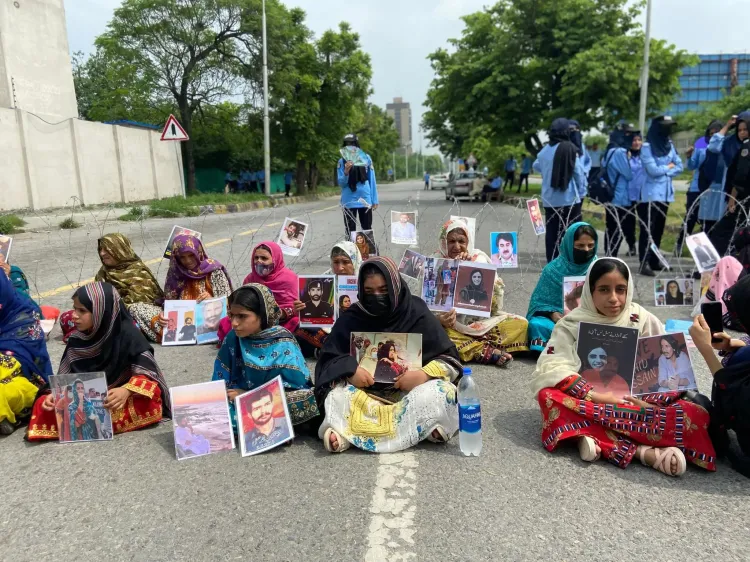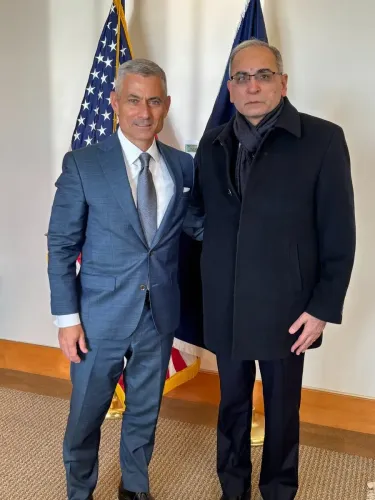Are Families in Balochistan Being Forced to Disown 'Militant' Relatives?

Synopsis
Key Takeaways
- Collective punishment violates human rights standards.
- Families are coerced to disown relatives under threat.
- The HRCB vehemently condemns the directive.
- International law obligations are at stake.
- Urgent need for accountability and justice in Balochistan.
Quetta, Sep 21 (NationPress) A prominent human rights organization has issued a strong condemnation of a recent mandate from the Balochistan government that forces families to present sworn affidavits renouncing relatives accused of militancy, under the threat of criminal prosecution, property confiscation, and withdrawal of state benefits.
"This directive represents a form of collective punishment that directly contravenes international human rights and humanitarian law. By attempting to penalize entire families for the alleged deeds of individuals, the state is not only breaching the tenets of individual accountability and due process but is also engaging in actions that resemble crimes against humanity," stated the Human Rights Council of Balochistan (HRCB).
The HRCB highlighted that this order is particularly egregious in its treatment of the families of those who have undergone enforced disappearance.
The rights organization pointed out that compelling families to report to Pakistan's Army and Frontier Corps—entities that have been credibly accused of executing enforced disappearances across Balochistan—amounts to an act of deliberate humiliation, coercion, and psychological torture.
Such actions, according to the HRCB, further embed impunity for serious violations while shifting the responsibility from Pakistani authorities to the victims themselves.
The rights body has called upon the international community, UN human rights mechanisms, and legal experts to categorically condemn this draconian and unlawful policy.
"It is crucial to recognize this measure for what it truly is: a blatant infringement of Pakistan's commitments under international law, including the International Covenant on Civil and Political Rights (ICCPR) and the Convention Against Torture (CAT)," the HRCB noted.
Moreover, the rights organization emphasized that instead of targeting families and institutionalizing collective punishment, the Pakistani Government must be held accountable for ending enforced disappearances, guaranteeing due process, and upholding the rule of law in Balochistan.
"Failing to do so perpetuates a cycle of repression that could equate to state-sanctioned persecution of an entire populace," the HRCB added.
People in Balochistan are currently striving for independence from Pakistan.
Numerous human rights organizations in Balochistan have repeatedly brought attention to the oppression by Pakistani forces in the area, which includes violent raids on the homes of Baloch leaders and civilians, unlawful arrests, enforced disappearances, the 'kill and dump' policy, detention under the Maintenance of Public Order Ordinance, and the filing of fabricated police cases.









